
Hello everyone,
Happy new year and welcome to the latest issue of our church newsletter. Our newsletter is sent out regularly to share reflections from services, Bible readings and church news to our church family. You can find previous issues on our church website here.
We would love to hear from you and are always looking for uplifting and encouraging content to share in future issues of this newsletter. If you have any ideas or content that we can share, please do email them to Louise (publicity@christchurchuxbridge.org.uk)
Opening Prayer
Visiting, travelling, God of migration,
as we begin our journey through 2024,
and celebrate the journey of the Magi to meet the Christ-child,
we ask that you will travel with us,
today and every day.
Show us the starlight of your grace, we pray.
Amen.
(Taken from The Vine)
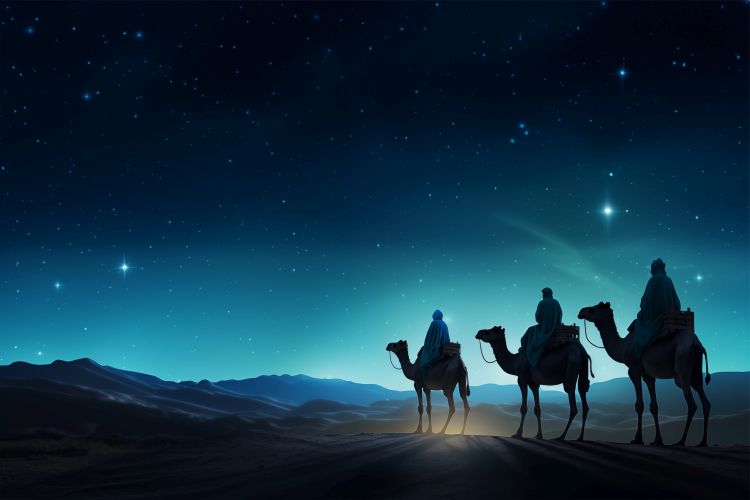
Reflection from 24 December: YES to hope
Readings – Luke 1: 46b – 55 and Luke 1: 26-38
We lit a candle earlier for hope. Can we have hope? This is a question I’ve been asking myself with some urgency this Advent and maybe you have too. Can we have hope for a future for the Holy Land and for the people of Gaza this day, still subject to savage and indiscriminate bombardment? Bereaved, sick, living in makeshift tents in wet, cold weather. Denied the basics of life, food, water, medicine, communication and of course the basic human right to safety. Can we have hope for the people of Ukraine and Russia too? Can we have hope for the people of Sudan? Can we have hope for the future at all? As COP28 more or less lived up to Greta Tunberg’s prediction: ‘blah blah blah’ and no real change.
That’s the global backdrop to our celebration of Christmas and we can add to it our own national and personal woes. It’s no good ignoring it. The good news is that Jesus was born to save the world, just as it is, as well as ourselves just as we are. Christmas has to be big enough to encompass even what’s almost unbearable.
It’s a young woman who helps us reflect today. Just a girl. The teenager Mary. Young though she is, she understands completely what her people need and what God has promised. I’m reminded of young girls I’ve had heard speak out for the freedom of Palestine, both over there and back home here. Mary’s hope: that God uses the fervour of the young; that God fulfils promises made generations ago; that God will see things turned upside down. The powerful and rich getting their comeuppance, and the humble in character and status, getting recognition and fulfilment. She sees hope brought to fruition and her own condition. In six months’ time, she is to become the mother of the Prince of Peace, the Lord of Creation.
Hope is infectious, don’t you think, when it comes from the mouth of someone who has a whole life ahead of them to live out that hope? Mary’s son is more than just wishful thinking. She’s allowed herself to be a channel for the fulfilment of those hopes.
Our second reading showed us Mary three months earlier in the story where she received this extraordinary proposition from the Archangel Gabriel that she should become pregnant with God’s Messiah. Without a moment’s regret for the suffering this is going to cause her now with an unexplainable pregnancy, and later as she will support Jesus’s risky ministry and terrible death, she says, “let it be done.”
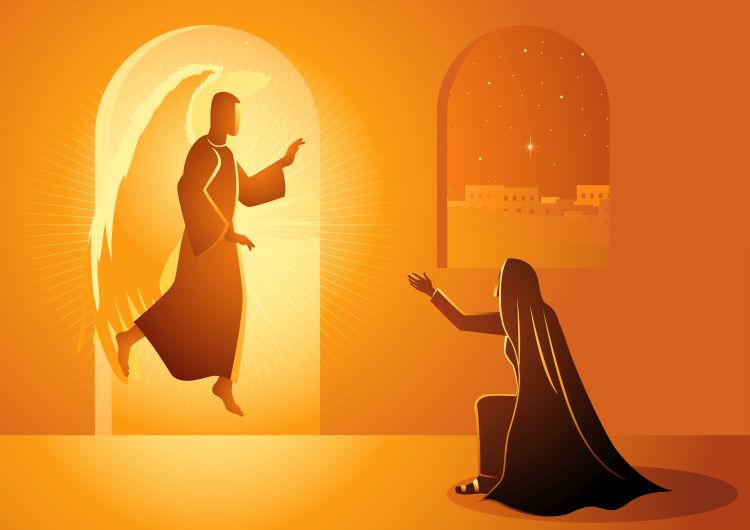
Hope is an action, a verb. Saying yes to what we believe comes from God, although the implications and the outcome aren’t yet clear.
We also heard the story of Babushka earlier. And I identify with her not because I’m house proud, but because I too am always busy, busy, busy and in danger of missing the call that is in fact the most important thing in my life. Babushka is in many ways the opposite of young Mary. When Mary is called, she’s available and, it seems not busy, not too busy to listen anyway. But Babushka, on the other hand, can’t let go of the need to keep her floors clean, provide just the right dish for her guests, and wash up as soon as supper is finished. A bit like Jesus’s friend Martha. She’s not a bad woman, she’s just super conscientious. And maybe she misses her call partly because it just seems too good to be true, and she can’t really take it in. And of course. In the mercy of God, she doesn’t actually miss her call, but works it out in her own unique way bringing kindness, care and laughter, and shining with the light that is, in fact, a reflection of the light of the world.
We all get a second chance. We talk about hope as a gift. And indeed it is, but it’s a bit like the little gift that I’ve received recently. Sometimes at weddings and funerals, people give a little packet of seeds to take away and plant. I’m afraid mine just sit around for ages, and they’re lucky to get planted. I don’t mean to treat the gift of hope like that. So, we’re meant to take these tiny seeds and prepare a piece of ground, or a little pot and plant the seeds and make sure they get water and sunshine and then protection from other species that might squeeze them out. Admiration as they grow and eventually flower.
So it is with hope. Hope is not a ready-made bouquet tied with ribbon. We need to receive it readily and nurture it and believe in it even when we can’t see anything at all above the earth it’s planted in. That means that means being available like the girl Mary, and being ready when God calls. Or like Babushka. If we’re not naturally quiet souls, we can learn to develop our inner life by making space for prayer and prayer can be a conversation with God. Or a walk in the park with God. Or listening to music or singing or reading a story to a child or, best of all, sitting wordlessly in the presence of our creator and just letting God be God. It’s so easy to drop quiet time when it’s most appropriate. For example, now in the run up to Christmas. So I invite you to make it part of the way you care for yourself and to be intentional about taking time for it the next few days and every day thereafter.
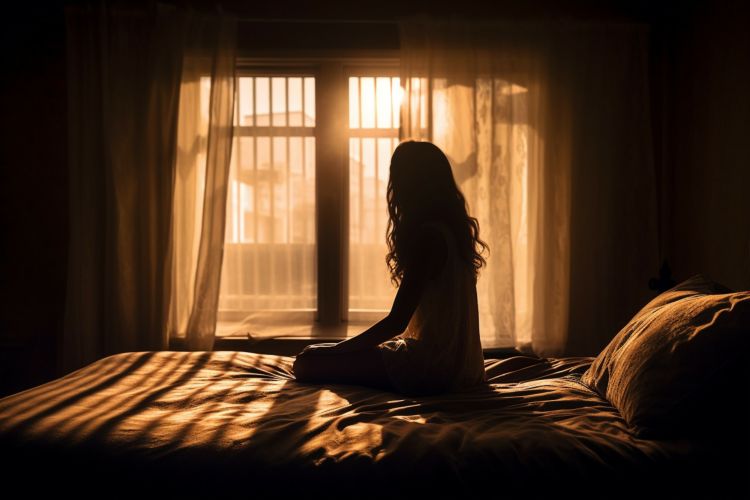
We nurture hope also by knowing something of the nature of God, as Mary did, and Babushka as she reflected the nature of God in her generous giving to the children who needed it most. We nurture hope by remembering that God cares for children and old people. People who are poor and powerless. People who are hungry and under threat. People who are sick and desperate. It’s all in the Bible.
So we nurture hope by taking what’s in the Bible, in the prophets, and in the life and death of Jesus and praying, thinking, listening and reading to try to see how that applies in the world today. The kind of horrors we face today are all there. And yet there is always hope. God has not abandoned the people. Jesus came not to condemn, but to save the world. Jesus died the most horrible death and yet he lived again.
Whatever horrors happen in the world, whatever impossible things we have to go through. There is new life, there is fresh meaning. Get to know this in your bones. And then you’ll put your hand to the things that bring life and health and prosperity to the human family, wherever they are, and the animals too. Not knowing how things will work out, but trusting in the God who trusted himself to us as a tiny baby. And as you talk and give and act and persuade and hang on when it’s tough, and turn to prayer over and over again, and say yes to God once again, you yourself will become a sign of hope. That’s what I’d like for Christmas. To become a sign of hope. What about you?
Revd Maggie Hindley
Reflection from 31 December: Good endings and positive beginnings
Readings – Galatians 4: 4-7 and Luke 2: 22-40
We reflect on good endings and positive beginnings in this period of our lives; today being the last day of the year. And for that we ask God’s blessing upon us. That our meditation, our reflections may be like an open heart receiving the award and the sentiment of the spirit. Amen.
I wonder how good you are with New Year’s resolutions? I’m not very good with New Year’s resolutions, to be honest with you and with myself, first of all. But I think it’s important that, from time to time, we take time to reflect, take stock, see where we are, review things and even consider if there’s an opportunity for change. What is it that needs a good ending? And perhaps what is it that needs a positive beginning in your own life, the life of your family, or perhaps in your work space, studying space, or perhaps the church?
One of our readings today is a story of a man and a woman, both quite elderly, who had great expectations of things to change. And they expected the hand of the Lord to help them in that transition from one situation to another. Perhaps they could not quite see the tasks to be done, or the actions to be taken. Perhaps they could not quite see the result or the consequence of those movements. But they had faith in an understanding that, yes, things are coming to a point where they need a good ending so that there can be a positive beginning.
That’s of course, Simeon and Anna, whose stories we heard in the reading today. Luke says Anna was 85, and someone at 85 with great perspective for the future of her faith and her people and the world. And who thought Lord God, this time for you to act. Please hurry. Do something about it. And Simeon was a man who had great vision for the future and was waiting for the signs that those things were to happen. Simeon and Anna. They could see the baby Jesus as a sign that the old things were passing away, bringing an opportunity for a new beginning; a positive new beginning.
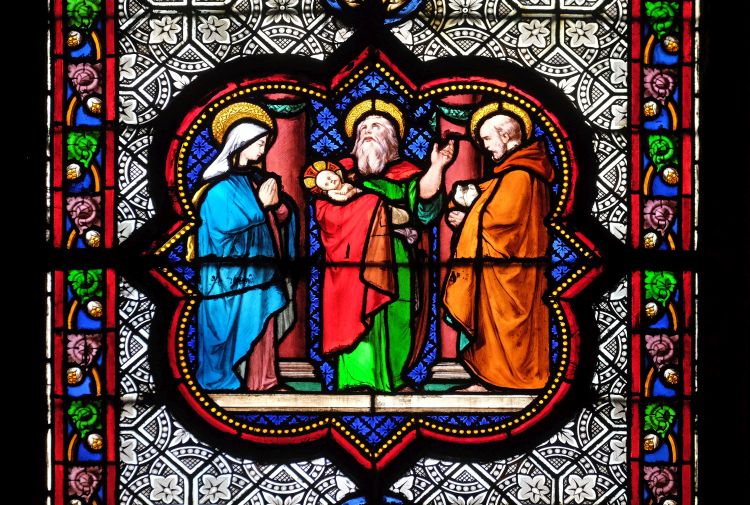
So here, Simeon and Anna welcome the baby in the temple. It’s the end of a terrible time, and the beginning of a new time, but then is followed by the killing of the innocents by Herod. So, there’s an in-between time before Jesus starts his ministry. An in-between time when things are tough and difficult. It reminds me of the situation in Gaza where there is this killing of kids – 8000 now or more. How can someone do that? Whatever justification, for of course, they are going to try and find the justification for it. Herald found a justification for it: kill them all because they threatened my power, my throne. What is happening in Gaza? One cannot but think of the killing of the innocents. But let’s pray and hope that this is the ending of a particular time of oppression and occupation. And hopefully and deservedly the beginning of a new time of harmony and peace.
Now Jesus family knew how to manage that and they escaped, didn’t they, to Egypt. Now all the conversation about Egypt isn’t it? Is Egypt going to have the 2 million people that are displaced or not? Should they go? Should they not go? But going to Egypt saved Jesus’s life. And then in his ministry, came many escapes. After the reading at the synagogue in Capernaum, and then in Nazareth when the people got angry against him. He manages to escape. But when he had to face a definite end, a definite threat to his life, an existential threat, he resolutely directed his face to Jerusalem, knowing that there was no way out. To face his destiny. To die on the cross and to be raised again on Easter Sunday, as we celebrate it. And the great revelation of the cross that God is to be found in unexpected places and the worst possible locations. God’s not all about success and power. God’s about suffering and giving of oneself in love. A great revelation, a great light to the world. That was seen in Jesus Christ, his face. In the face of Christ, Christ, the glory of God. Which glory on the cross? The glory of God in the face of Christ.
And then in our readings today, they suggested by Saint Paul that in fact, through Christ, we ourselves have received something divine. What is it that we have received? The mind and the face of Christ. So St Paul says in his own way to interpret all that had happened from his personal experience. He says he served under the law as a Pharisee and was so zealous about it that he killed in the name of the things he believed. But then he realised that Christ had come to fulfil the law and to free us. That’s how Paul saw it and he had a very good ending to his career. He fell off the horse, and he saw the light, and he had a new understanding. And then he had a positive beginning when the time in between had been fulfilled. He started his ministry to the world as a great apostle to the Gentiles, so that light could shine to the Gentiles; the light of Christ.
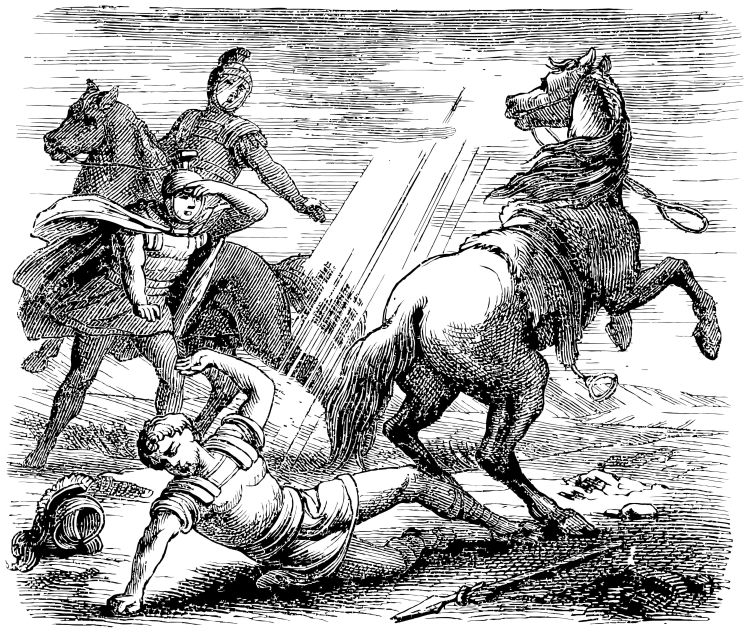
How long do you think this in-between time should be? When you end something and you end something well, and then you want to make a new beginning. The good ending and the new positive beginning, does it fall immediately or does it take a long time? Perhaps it depends on circumstances. For St Paul it was 14 years. He disappeared in the desert in Arabia. What was he doing? I don’t know. But he emerged from Arabia an apostle of Christ. What a long time in between.
In my own personal experience, it sometimes takes a long time, sometimes very quickly, but I know one thing: I want to be open to recognise when things are coming to an end and to recognise a new beginning. A positive new beginning. Recently they changed my job in the Methodist Church. There was nothing to be done. I embraced it. I had a new job, a new role. I embraced it fully. 25% of my job became 100% of my job. Now I’m full time for the language diverse groups in the Methodist Church. I wish it included the URC too! There are 10,000 people in the Methodist Church who worship in a different language and I am the officer for them now. It’s great, isn’t it? I love it. And I’m having a great time, but I had to let it go without looking back not to become a statue of salt. Without carrying the baggage or resentment and to embrace the new and move forward.
Once I sat in an aeroplane. I had a wife, heavily pregnant, and a one-and-a-half-year-old girl coming to England to be a mission partner. And I didn’t quite know what was going to happen? But I sat in that aeroplane after a very busy time to conclude everything, leave everything ready in Brazil so that we could move to another country. And I sat in the aeroplane and I recited in my own language Psalm 121: “I look up to the hills where does my help come from?” The meaning for me to say that psalm, to believe it and to let go of the whole many things that had been left behind to embrace a new opportunity. Our whole relationship with my church who couldn’t recognise my own ministry. Too political, too ecumenical, too interfaith. No, there was no opportunity. I had to leave that behind. All the friends, family and where we came from for a new beginning in our lives and the Lord blessed us so much with a very positive new beginning, because there was a church that embraced us. Here, to be honest with you, I’m a foreigner. There’s no problem with identity, but I never felt a foreigner because the church has been a community for me, a community of welcome, a marvellous experience that I felt here. Last time I was here. I told you another personal story, a sad story and someone kindly after the service took me to one side this church to say words of comfort. How kind.
So, when we need to move on, like Paul had to move on, sometimes it requires a great deal of. Of reflection so that you can really have a good ending and give thanks to God for what had been. And to move on perhaps takes a little time or a long time. To imagine what is to come; to prepare for it. And to be proactive to make it happen: the tasks, the actions to make sure you get there.
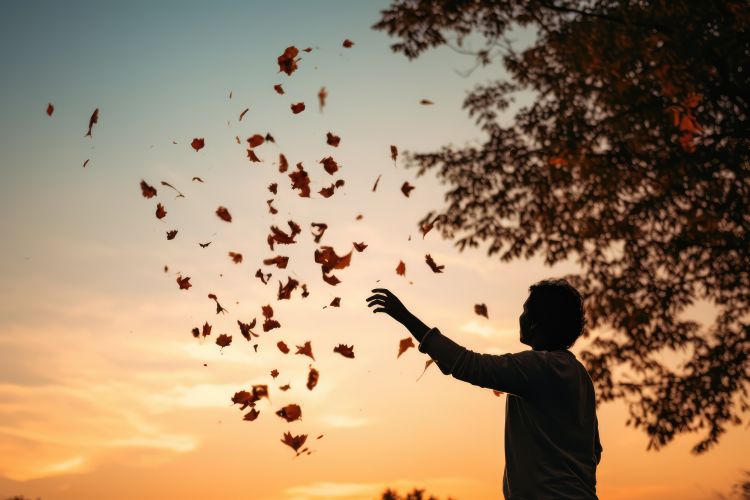
So thinking again about New Year’s resolutions. As you’ve gathered, I’m not very sure about New Year’s resolutions myself, but I’m very keen on the process of reflecting and letting things go. Or reflecting and letting things continue. Or reflecting and starting new things, I’m very keen on that. When you reflect about your New Year’s resolution, what is good that should continue? But what do you need to stop doing or change in your life? And then perhaps the most difficult one, what is it that you need to start doing? What are the new things that are to come in my life?
I pray that you and me, that we as individuals, families, churches, may be like Simeon and Anna. That we may have the power to see what is to come and embrace it, and have the spirituality to discern whether now is the time to move. To enable good endings in our lives. And to enable positive beginnings with creativity and initiative. To start, things that even may be difficult, but that you might have that courage and that strength within ourselves. Amen.
Revd Dr Leao Neto
Readings for 7 January
Mark 1: 4-11
4 And so John the Baptist appeared in the wilderness, preaching a baptism of repentance for the forgiveness of sins. 5 The whole Judean countryside and all the people of Jerusalem went out to him. Confessing their sins, they were baptised by him in the Jordan River. 6 John wore clothing made of camel’s hair, with a leather belt around his waist, and he ate locusts and wild honey. 7 And this was his message: “After me comes the one more powerful than I, the straps of whose sandals I am not worthy to stoop down and untie. 8 I baptise you with water, but he will baptise you with the Holy Spirit.”
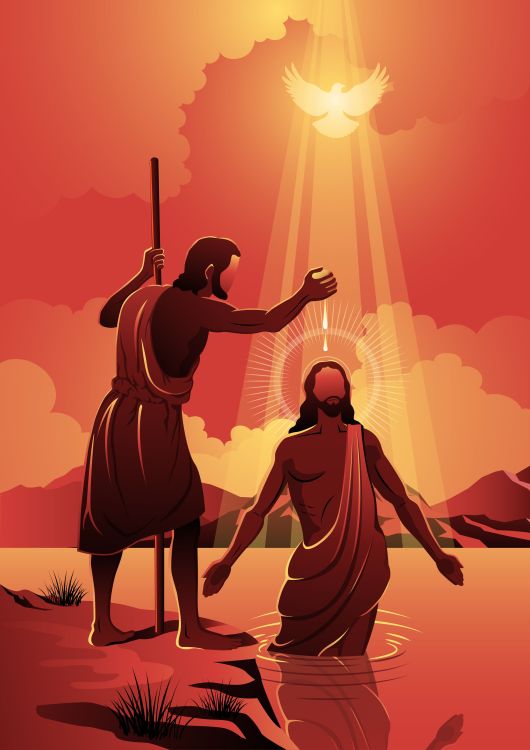
The Baptism and Testing of Jesus
9 At that time Jesus came from Nazareth in Galilee and was baptised by John in the Jordan. 10 Just as Jesus was coming up out of the water, he saw heaven being torn open and the Spirit descending on him like a dove. 11 And a voice came from heaven: “You are my Son, whom I love; with you I am well pleased.”
Further readings from the lectionary this week are as follows:
- Genesis 1: 1-5
- Psalm 29
- Acts 19: 1-7
Our worship
We meet at 11am for our Sunday services, which are also live-streamed on our Facebook page. If you wish to view our services online, you can find them at www.facebook.com/christchurchuxbridge. You do not have to be a Facebook user to watch them – our services are publicly viewable. You can also view a recent service on our church website. Our service this week will be led by Christ Church member, Louise George. You can find the order of service here.
If you are unable to join us in person or online for our Sunday services, but would like to receive a recording of them on a memory stick to watch at home, please let us know.
Forthcoming services
7 January – Christ Church worship group
14 January – Neil Mackin (Christ Church member) – parade service
21 January – Alan Yates (URC lay preacher)
28 January – Revd Dr Claire Potter (Methodist minister) – Holy Communion
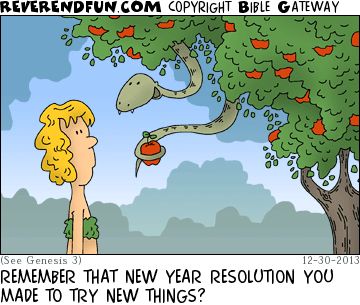
From the Circuit
WCC Israel & Palestine Presentation
Trinity Harrow have invited Sarah Barber from the WCC Ecumenical Accompaniment Programme for Israel & Palestine (EAPPI) to come and speak about the programme. Come along on Wednesday 10th January (No entry fee!) to have an opportunity to learn more about the current situation in Israel & Palestine – the event starts at 7:30pm with some light refreshments before a 40 minute presentation beginning at 8pm and questions afterwards, finishing around 9pm.
More information on the event can be found on the EAPPI website: (https://www.oikoumene.org/what-we-do/eappi)
Dates for your diary
| 10 January | Welcome Wednesdays |
| 24 January | Welcome Wednesdays |
| 7 February | Welcome Wednesdays |
| 18 February | Annual Congregational Meeting |
| 21 February | Welcome Wednesdays |
| 6 March | Welcome Wednesdays |
| 20 March | Welcome Wednesdays |
| 3 April | Welcome Wednesdays |
| 17 April | Welcome Wednesdays |
| 19 May | Congregational Meeting |
| 8 September | Congregational Meeting |
| 24 November | Congregational Meeting |
Children’s Corner
Can you find the following countries mentioned in the Bible in the wordsearch?
| ACHAIA
ASIA MINOR ASSYRIA BABYLON CANAAN CRETE CYPRUS EGYPT ETHIOPIA GALATIA INDIA |
JUDAH
MACEDONIA MELITA PERSIA PHILISTIA PUT ROSH SAMARIA TARSHISH TOGARMAH |
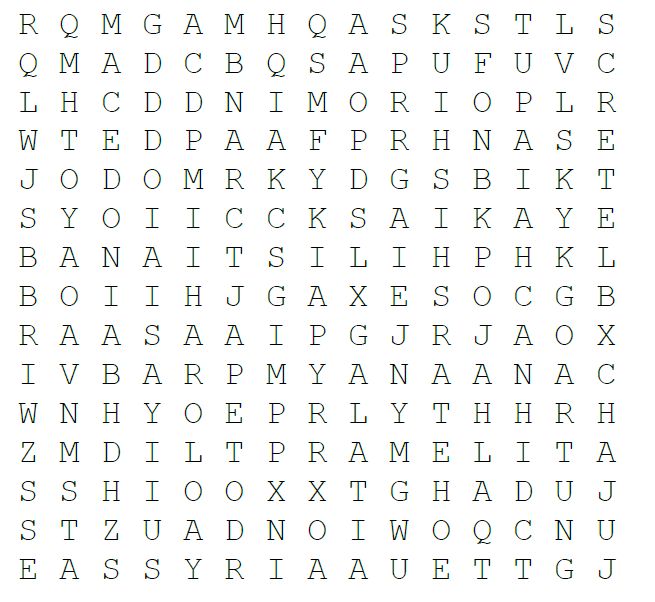
Praying for other churches
This week we hold the following churches in our prayers:
- Ruislip Manor Methodist
- Holy Trinity, Perivale (URC/CofE)
- St Margaret’s Church, Uxbridge
Closing prayer
Help us to look for you, Lord, around every corner,
in every place and at every time.
Help us to be in tune with new things you are doing,
and help us to join in.
Amen.
(Taken from Roots
